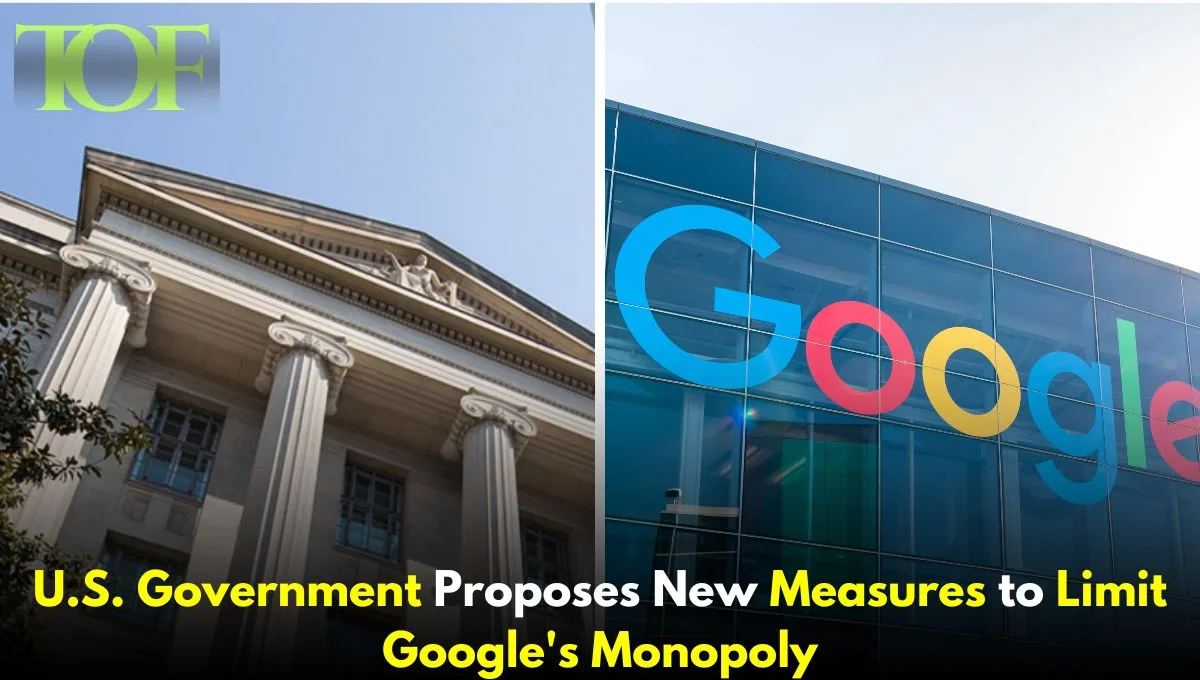The Department of Justice has intensified its efforts to curb Google’s dominance in the search engine market. In a recent filing, it outlined proposed sanctions that could reshape the company’s operations in the future.
The DOJ filed in response to federal Judge Amit Mehta’s ruling in August which declared Google guilty of illegally maintaining its monopoly of the search engine market. The Department of Justice is now proposing “behavioral and structural” remedies so that Google can no longer use its position to gain an unfair advantage over competitors.
One of the main assertions is that of ending exclusive agreements between Google and companies like Apple and Samsung. As of now, those contracts ensure that Google’s search engine will stay on default for millions of devices and thereby limit choices at the consumer’s level. The government argues that it is such an agreement that makes it quite impossible for contenders to gain a foothold in the market.
Google’s vice president of global affairs, Lee-Anne Mulholland, commented on DOJ’s proposal stating that this proposal may just spell a breakup for Google’s Chrome and Android businesses. “These businesses cost the company billions of dollars to develop,” she said, adding that they are free, have open-source code, and benefit competitors and customers alike.
This is tantamount to the classic antitrust case of the Justice Department against Microsoft in 1998. In that case, the issue was that Microsoft products were used to suppress the competition; in this case, however, the claim on the table by the DOJ is that Google has been using contracts to significantly hold it, hostage, in the digital arena.
Complaints say that the activities by Google have led to “interlocking and pernicious harms” that do not just target businesses but common consumers. As held by the DOJ, Google’s control over internet search and tracking data indicates that it restrains users’ choices and therefore limits innovation in the technological arena.
Another key concern the DOJ has in this direction is Google’s data-tracking activities. The government suggests new rules that would limit how much user data Google should collect, as the government argues that this excess data collection is a serious issue concerning privacy. According to the DOJ, such restriction will not only help the consumer but also save other search engines from the biased data collection practice of Google.
Critics of Google, including DuckDuckGo CEO Gabriel Weinberg, argue that limiting such exclusive contracts would allow smaller players to thrive. Weinberg has publicly stated that most consumers do not actively choose Google but default to using it. His firm, DuckDuckGo, is one such smaller player.
In turn, if Judge Mehta sides with the proposed DOJ measures, the fallout could quickly snowball into something much larger than Google: tech giants Amazon, Apple, and Meta already have faced their fair share of antitrust questions. And a victory over Google can only help set a precedent for even more aggressive steps taken by regulators against the other big players in the tech industry.
Bill Kovacic, an antitrust expert at George Washington University, believes that the case could be a springboard for further regulatory actions. “It gives momentum to the Department of Justice and Federal Trade Commission prosecutions of other major tech companies,” Kovacic explained.
The company is going to present an argument later this year; the court hearing is also set for next April. Google has already announced that it is going to move forward with the legal battle against the allegations by the DOJ, asserting that market dominance is achieved due to better quality products based on customer preference.
The future trials for Google will cover both its search engine and advertising business. The DOJ has accused Google of monopolizing ad tools, which is essentially a similar case to its search engine lawsuit. A loss in these areas could significantly alter the digital advertising landscape in response to stricter regulations across its business model.
But the case against Google is more than just a fight over the search engine: it is a more momentous attempt to regulate Big Tech in the digital space. The verdict will shape the future of companies such as Google, good or bad, and determine everything from the cutthroat practice of consumer privacy to market rivalry.
The stakes are extremely high, not only for Google but also for the broader tech industry. Regulators are therefore working to realign a market badly dominated by a few powerful players. The final decisions in these cases will lay out a framework for future battles over antitrust and shape the future landscape of digital technology.
Read About Facebook’s new content Monetization Policy
To Read More: Technology

